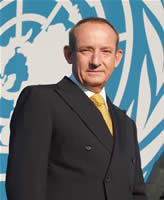 |
London (AFP) Nov 26, 2007
Britain's leading employers' body said Monday that tackling climate change was an "urgent" priority for business, government and consumers.
The Confederation of British Industry placed global warming at the heart of its agenda as its annual conference began in London.
The CBI will address "urgent, concrete and measurable actions that UK business needs to take to address the risk of climate change," Martin Broughton, the group's president and British Airways chairman, said in a speech that opened the two-day conference.
On Monday, the CBI published a flagship report from its climate change task force, a high-level grouping of 18 chief executives and chairmen from top British companies. Read More






